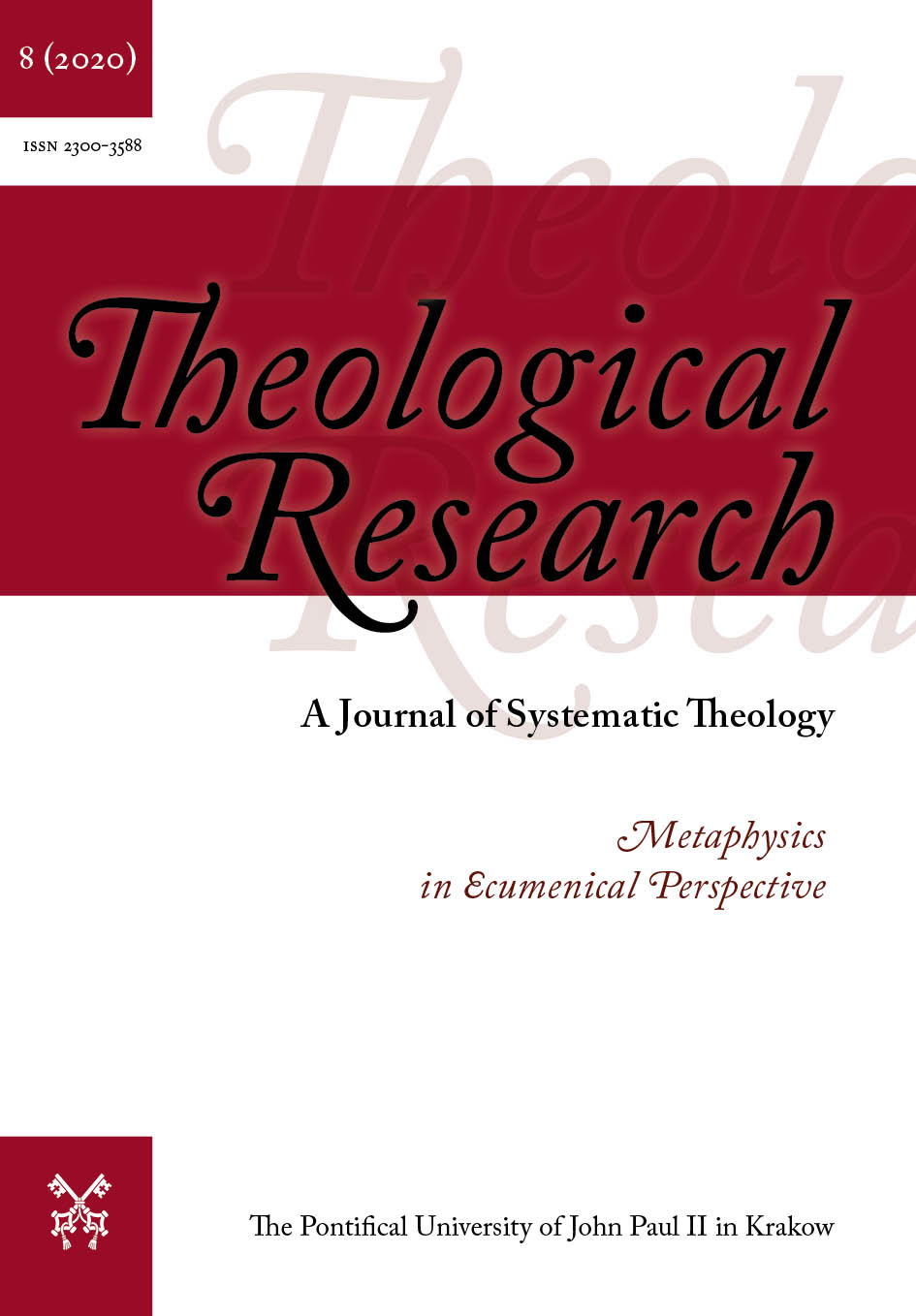The Ontology of Theosis: Insights from Maximus the Confessor
DOI:
https://doi.org/10.15633/thr.4125Słowa kluczowe:
deification, Finnish Luther, Maximus the Confessor, theosisAbstrakt
This article describes the ontological problem of theosis or deification in terms of two dimensions: the relationship between the finite and the infinite, and the relationship between human nature and sin. Both problems are clarified through the thinking of Saint Maximus the Confessor and his distinction between logos and tropos, that is, the constitutive nature of a thing and its existential mode of being. Theosis is presented not as a transformation of the human nature, but a transformation of our mode of being by its healing and elevation by divine grace. Maximus’ theological anthropology explains how the effects of sin should not be situated at the level of human nature but its mode of being. His conceptual distinctions may help to clarify the thought of Luther, at least as it is presented in the Finnish interpretation of Luther.
Bibliografia
Bathrellos D., Passions, Ascesis, and the Virtues, in: The Oxford Handbook of Maximus the Confessor, eds. P. Allen, B. Neil, Oxford 2015, pp. 287–306.
Garrigues J.M., Maxime le Confesseur: La Charité, avenir divin de l’homme, Paris 1976.
Larchet J.-C., La divinisation de l’homme selon saint Maxime le Confesseur, Paris 1996.
Larchet J.-C., The Mode of Deification, in: The Oxford Handbook of Maximus the Confessor, eds. P. Allen, B. Neil, Oxford 2015, pp. 341–359.
Léthel F.-M., La prière de Jesus à Gethsémani dans la controverse monothélite, in: Maximus Confessor: Actes du Symposium sur Maxime le Confesseur, eds. F. Heinzer, Ch. von Schönborn, Fribourg 1982, pp. 207–214.
Léthel F.-M., Théologie de l’agonie du Christ: La liberté humaine du Fils de Dieu et son importance so-tériologique mises en lumière par Saint Maxime Confesseur, Paris 1979.
Louth A., Maximus the Confessor, London 1996.
MacFarland I.A., The Theology of the Will, in: The Oxford Handbook of Maximus the Confessor, eds. P. Allen, B. Neil, Oxford 2015, pp. 516–532.
Mannermaa T., Christ Present in Faith: Luther’s View of Justification, Minneapolis 2005.
Maximus Confessor – Ambigua ad Thomam una cum Epistula secunda ad eundem, ed. B. Janssens, Turnhout 2002 (Corpus Christianorum Series Greaeca 48).
Maximus the Confessor, On Difficulties in the Church Fathers: The Ambigua, ed. and trans. N. Constas, 2 vols., Cambridge, MA 2014 (Dumbarton Oaks Medieval Library 28–29).
Nichols A., Byzantine Gospel: Maximus the Confessor in Modern Scholarship, Edinburgh 1993.
The Oxford Handbook of Maximus the Confessor, eds. P. Allen, B. Neil, Oxford 2015.
Perl E., Methexis: Creation, Incarnation, Deification in Saint Maximus Confessor, PhD dissertation, Yale University 1991.
Sherwood P., The Earlier “Ambigua” of Saint Maximus the Confessor and His Refutation of Origenism, Rome 1955.
Thunberg L., Man and the Cosmos: The Vision of St. Maximus the Confessor, Crestwood 1985.
Thunberg L., Microcosm and Mediator: The Theological Anthropology of Maximus the Confessor, 2nd ed., Chicago 1995.
Union with Christ: The New Finnish Interpretation of Luther, eds. C.E. Braaten, R.W. Jenson, Grand Rapids 1998.
Urbano P., Christus in fide adest. Cristo presente en el creyente o la teologia de la deification en Lutero, “Scripta Theologica” 32 (2000), pp. 757–799.
Urbano P., Theosis: La doctrina de la divinización en las tradiciones cristianas. Fundamentos para una teología ecuménica de la gracia, Pamplona 2001.
Pobrania
Opublikowane
Numer
Dział
Licencja
Autrzy publikujący w czasopiśmie "Theological Research" zgadzają się na następujące zasady:
a. Autorzy przenoszą na rzecz Uniwersytetu Jana Pawła II w Krakowie (UPJPII) autorskie prawa majątkowe do swoich tekstów.
b. UPJPII udostępnia teksty na platformie wydawniczej, na licencji Creative Commons Uznanie autorstwa-Użycie niekomercyjne-Bez utworów zależnych 3.0 Polska, która umożliwia ich pobieranie i udostępnianie (np. w repozytoriach naukowych), o ile zostaną spełnione warunki:
- podany autor i tytuł tekstu,
- podane miejsce publikacji (tytuł czasopisma i adres internetowy do oryginalnie opublikowanego tekstu),
- tekst będzie dystrybuowany w sposób niekomercyjny.

